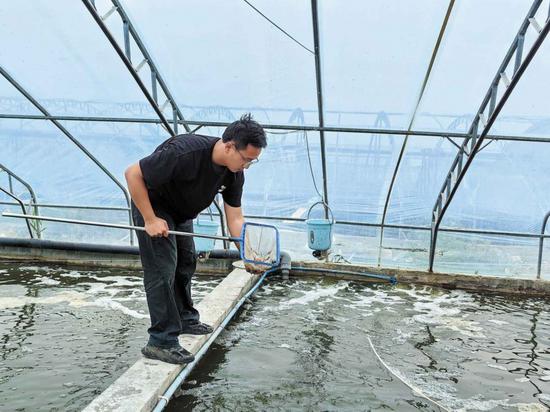
A technician checks on South American white shrimp raised at a breeding base in Alaer city, Xinjiang Uygur autonomous region. (Photo by Zhang Wei/China Daily)
The saline-alkali land found in Alaer city of the Xinjiang Uygur autonomous region is being used to raise fish and shrimp, feeding the demand for seafood in China and reducing the country's dependence on imported products.
At a breeding base at Jinyang town in Alaer, Huang Guang, an agricultural technician, checks South American white shrimp and grouper at the pond.
"The pH level of the saline-alkaline water is around 8.0, which is suitable for the growth of sea fish and shrimp. We also added trace elements into the water to make the environment more similar to that of the ocean," he said, adding that the elements are edible and pose no harm to human health.
In March last year, Huang and his colleagues succeeded in raising South American white shrimp at the base and began trials for breeding grouper in May this year.
"Our shrimp sells especially well. The taste and quality are similar to seafood from the ocean," he said.
Huang said he was initially unaware of Xinjiang's high-quality saline-alkaline water and doubted the feasibility of fish and shrimp farming there.
The results have surpassed their expectations, he added.












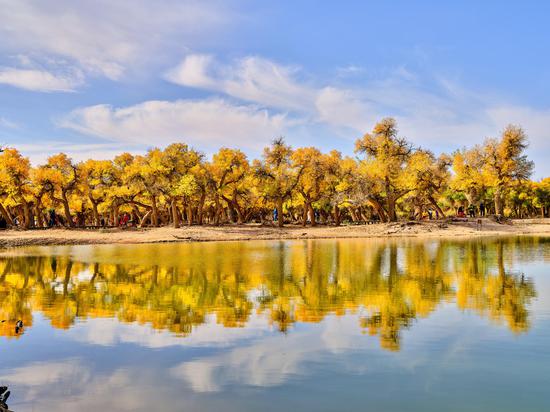




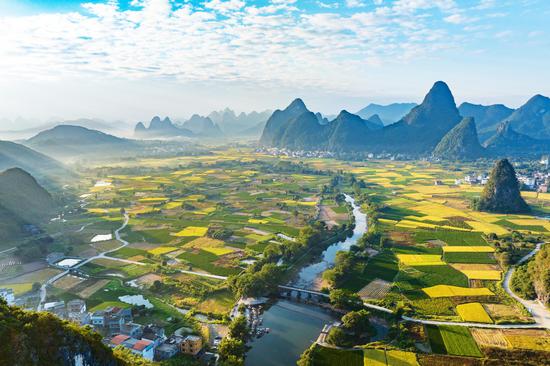
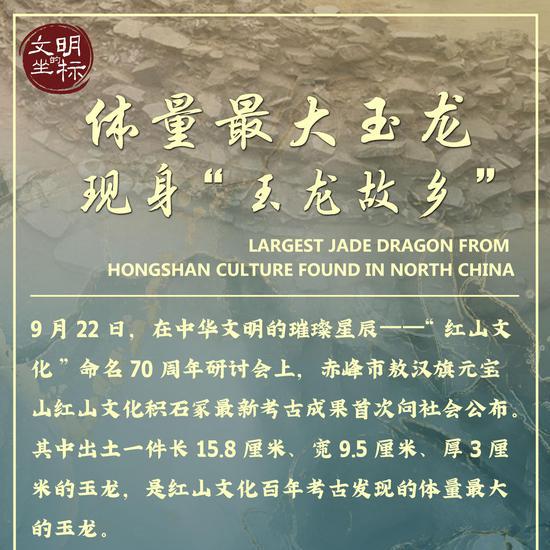
















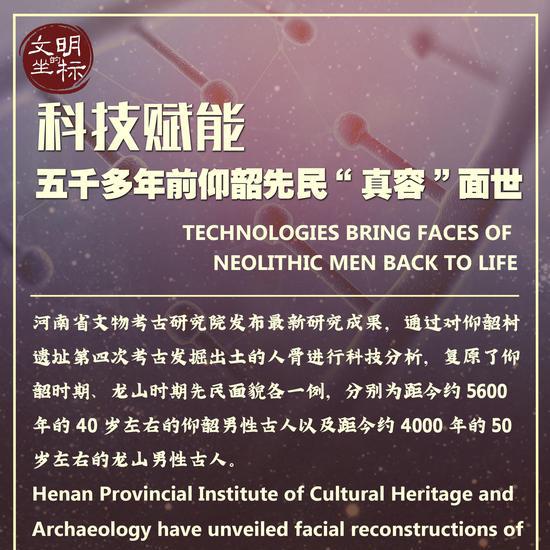

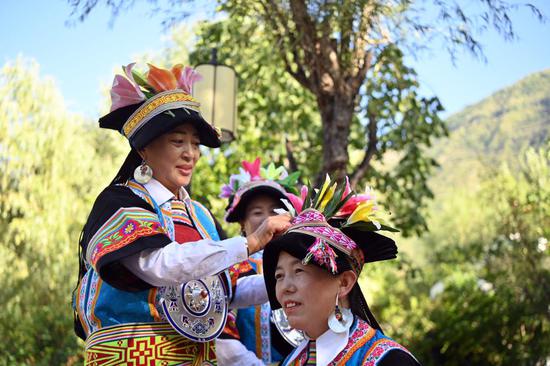
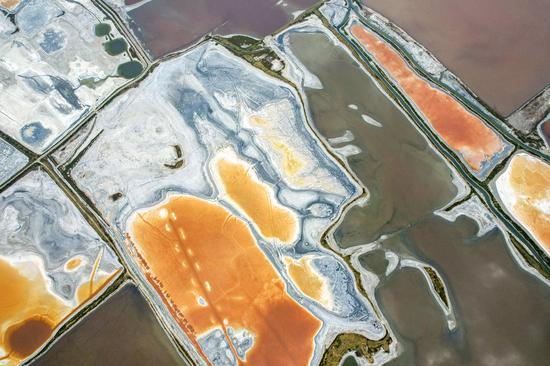











 京公网安备 11010202009201号
京公网安备 11010202009201号